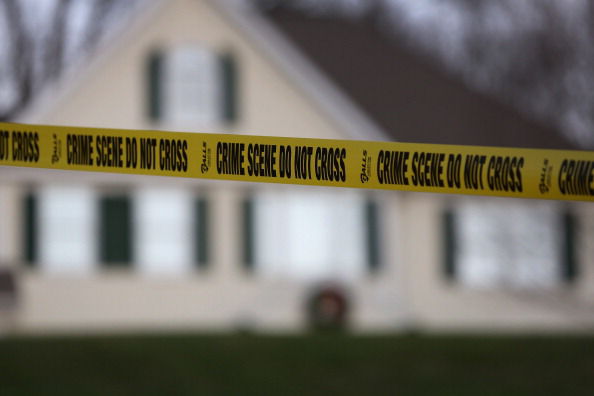- App Content
- App Content / News
- News
- News / Politics And Administration
- News / Politics And Administration / City
Ames Police and mental health:

Hannah Olson / Iowa State Daily
Police tape in front of a house.
October 18, 2017
The Ames Police Department and the Iowa State Police Department both reach out to the community as a resource to help residents or students dealing with mental illnesses.
Iowa State Police have been very active on social media about their involvement with the issue, with campaigns such as “One Mind” and pairing with NAMI ISU to show support during Mental Health Awareness Week.
The Ames Police Department has been less active on social media in regards to promoting campaigns, but they deal with mental health related cases every day. How do Ames Police deal with such situations?
Ames Police Department mental health liaison Julie Saxton works with cases that involve persons suffering from mental illness.
Saxton, said, “I am a liaison for law enforcement, the clients that they come in contact with, and the [mental health] providers in our community.”
Saxton said she starts her day by examining cases, deciding what cases are mental health related, and sending that information out to therapists, social workers, and anyone else that may be a provider for that person involved in the case.
“I typically serve as their long-term support. Once I connect them with someone, I am usually involved in that recovery process” Saxton, said.
In very urgent cases, such as an individual having a psychotic break or a suicide crisis, Saxton arrives alongside police on the scene.
“I have been called out before for people who are suicidal” Saxton, said. “The goal is that we want them to voluntarily say ‘I want to receive help.’’’
Saxton said that all Ames Police officers undergo forty hours of Critical Incident Training (C.I.T.), which teaches de-escalation techniques for serious situations that could become hostile or violent.
“The last thing that we want to do… is have to put hands on someone, or have them escalate to a point where they become physical with the officers”, Saxton, said. “Our officers are very much trained in how to deal with a mental health crisis.”
There are stigmas surrounding mentally ill persons and engaging in acts of violence or aggression, that they are more likely to do so because they are having a crisis or psychotic break. Saxton said she doesn’t believe this to be the case.
Saxton, said, “When someone is in a state like that, typically they really aren’t violent, they’re actually more prone to being victims of violent crime.”
Mental illness affects more people than just the person suffering from it. Saxton said that family members, friends, and loved ones can experience second hand trauma, along with police officers and other people involved with the situation.
“We are all affected by second hand trauma every single day, and it piles up. We have to do a better job talking about that… and acknowledging that that happens” Saxton, said.
Police encounter many disturbing, saddening, and negative situations while working. They see violence, medical emergencies, and other things that most people never experience, every day. Saxton said this can cause law enforcement workers to develop a cynical view of the world.
“We see the worst of the worst” Saxton, said, “We are seeing people at their very worst, which is really sad, and we’re in it because we have compassion… [Law enforcement] have to work really hard not to view the entire world that it’s negative like that, and that is hard.”
Saxton said that engaging in wholesome, positive activities outside of work can help to reduce the cynicism that law enforcement may feel after dealing with negativity for so long.






